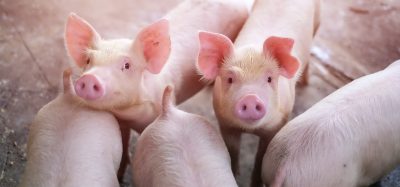What causes food addictions?
- Like
- Digg
- Del
- Tumblr
- VKontakte
- Buffer
- Love This
- Odnoklassniki
- Meneame
- Blogger
- Amazon
- Yahoo Mail
- Gmail
- AOL
- Newsvine
- HackerNews
- Evernote
- MySpace
- Mail.ru
- Viadeo
- Line
- Comments
- Yummly
- SMS
- Viber
- Telegram
- Subscribe
- Skype
- Facebook Messenger
- Kakao
- LiveJournal
- Yammer
- Edgar
- Fintel
- Mix
- Instapaper
- Copy Link
Posted: 11 May 2022 | Abi Sritharan (New Food) | No comments yet
Researchers have identified key markers in the brain that may lead to developing a food addiction.


A team of researchers has identified certain common epigenetic (how behaviours and environment can cause changes that affect the way your genes work) markers in rodents and humans related to food addiction.
The study, published in the Journal of Clinical Investigation, found that food addiction is related to uncontrolled intake associated with obesity and eating disorders. The researchers of the study describe it as “a complex, chronic, multifactorial brain disorder that results from the interaction of multiple genes and environmental factors”, adding that its prevalence is increasing worldwide and there are no effective treatments.
You may also like:
In an earlier paper, the researchers identified the neurobiological mechanisms that allow the development of food addiction behaviour.
“Having identified the mechanism, we ask ourselves why some individuals are resilient, while others are addicted. To do so, we focus on epigenetic factors, that is, external or environmental factors that modify gene expression,” Elena Martín, co-author of the study, explained.
The scientists selected rodents addicted and not addicted to food. They specifically looked for epigenetic markers in areas of the cerebral cortex related to this addiction.
The researchers identified two main components of behavioural alteration: high motivation to obtain food and compulsive searching, despite the negative effects of such behaviour.
“Interestingly, we have seen that two specific epigenetic changes appear to be responsible for these behavioural hallmarks of the disease,” Rafael Maldonado, co-author of the study, said. “The similarities between mouse and human outcomes give significant translational value to the study. The role of epigenetics in vulnerability to food addiction opens the door to identifying biomarkers for the early diagnosis of the disease and the search for future therapies.”









